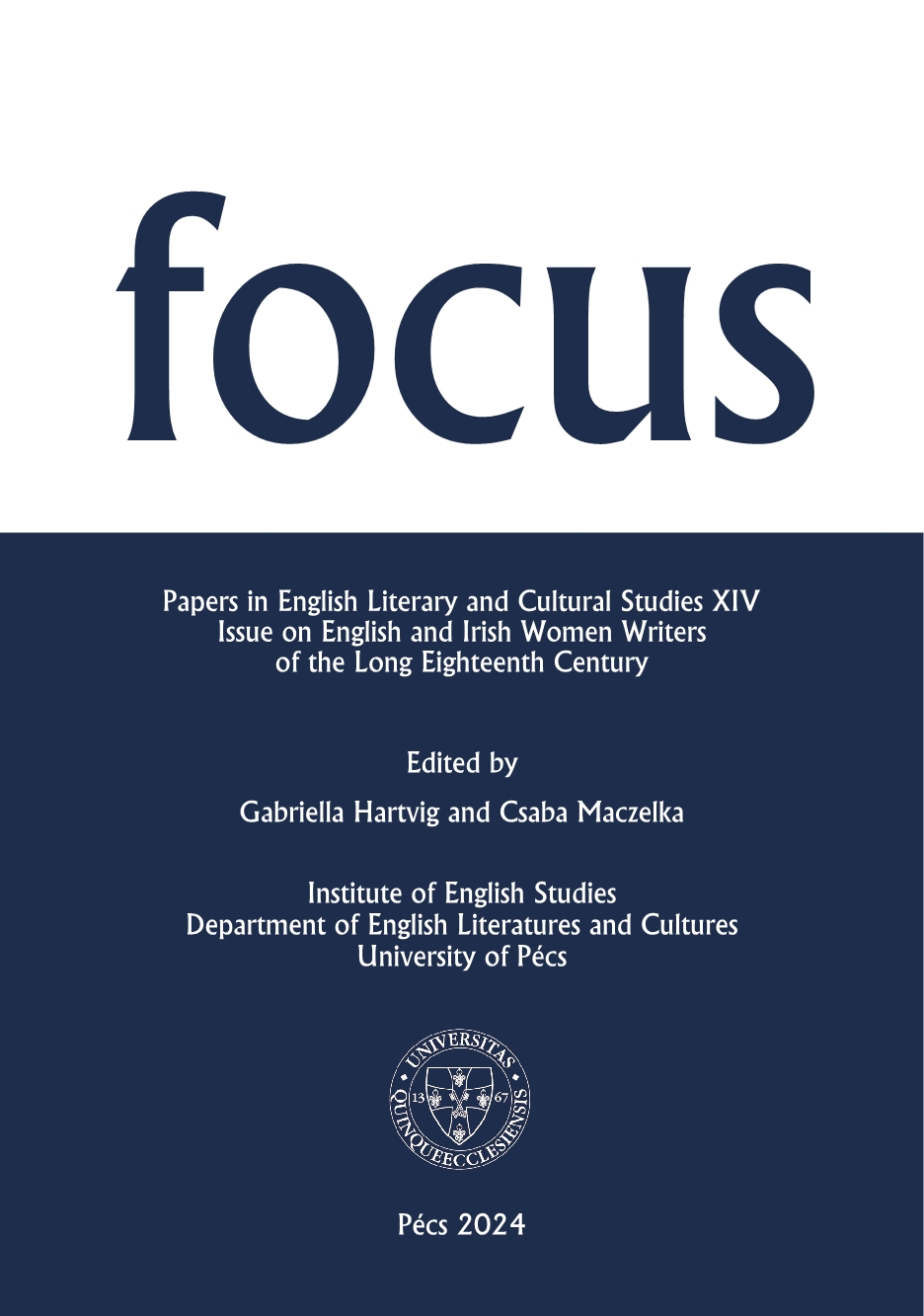From Frances Sheridan’s A Trip to Bath (1765) to Elizabeth Kuti’s The Whisperers (1999): Questions of Genre, Adaptation Strategies and Authorship
DOI:
https://doi.org/10.15170/Focus.14.2024.3Keywords:
Frances Sheridan, eighteenth-century English comedy, Elizabeth Kuti, adaptation, dual authorshipAbstract
The English-Hungarian Elizabeth Kuti’s (1969-) comedy, The Whisperers (1998) is based on the Anglo-Irish Frances Sheridan’s (1724-1766) unfinished third play, A Trip to Bath (1765). In fact, the later work is a special adaptation of the earlier one, the result of an intertextual conversation between the two writers, with Kuti completing Sheridan’s fragment in the spirit of the original. This essay examines how A Trip to Bath fits in with the contemporary comic genre on the stage and the ways and modes in which The Whisperers recasts it to produce a unique piece of collaborative theater. Kuti’s addition continues and energizes the reflection of the social and emotional variedness in the co-authored work, a feature which characterizes the best of eighteenth-century English comedy. The argument of the essay also concerns itself with issues of dual authorship, adaptation strategies, and both textual and dramaturgical coherence in the newly produced work.
Downloads
Published
How to Cite
Issue
Section
License
Copyright (c) 2024 Mária Kurdi

This work is licensed under a Creative Commons Attribution-NonCommercial-NoDerivatives 4.0 International License.
FOCUS: Papers in English Literary and Cultural Studies follows the principles laid down by Creative Commons, which provides guarantees for the Author’s copyright while also ensuring that intellectual properties are made available for the wider public in a digital form. All papers submitted to the journal apply the following licence conditions (indicated on the journal’s website as well as in individual publications):
“© This work is licensed under a Creative Commons Attribution-NonCommercial-NoDerivatives 4.0 International License.”
You are free to:
- Share, copy and redistribute the material included in the journal in any medium or format under the following terms:
- Attribution — You must give appropriate credit to the Author, and indicate the original place of publication [FOCUS: Papers in English Literary and Cultural Studies, Issue nr., page numbers.].
- NonCommercial — You may not use the material for commercial purposes.
- NoDerivatives — You are not allowed to remix, transform, or build upon the material.
- The above conditions must always be indicated if the journal material is distributed in any form.
- The above conditions must always be met, unless a written permission signed by the Author and the Editor-in-Chief states otherwise.

